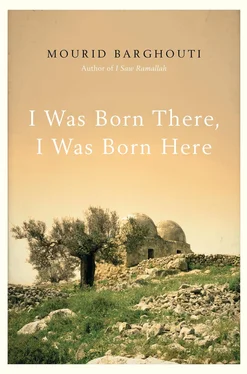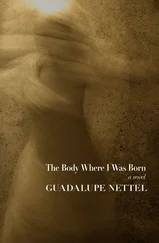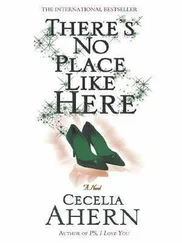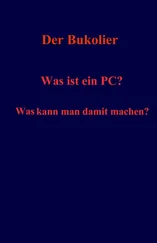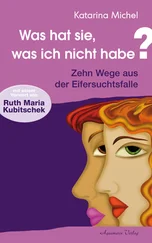“You’re my guest. I’m the one who’s going to cook and do the washing up and clean the house. Okay?”
“It won’t do, my son.”
“It will and that’s it.”
She smiled like one who doesn’t want to hear.
Majid was only nine months old when the Nakba occurred in 1948 (even my youngest brother is nine months older than the State of Israel). We were living in the city of Lydda, where my father worked, and there Majid was born in 1947, his birth bringing the number of brothers to three — Mounif, the eldest, who was born in Jericho, then me, who was born in Deir Ghassanah, then Majid. The attacks on Lydda by armed Zionists struck terror into the hearts of its inhabitants, not to mention the news that reached them of the killings and forced migration to which the other Palestinian cities, towns, and villages up and down the coast had been subjected. Reports of the hundreds of thousands who had fled by boat to Gaza or on foot to Lebanon, Syria, and Jordan came in quick succession. My father decided to take us back with him to our house in Deir Ghassanah. Traveling the mountain roads was extremely unsafe but it was the only way. They returned with us and the baby Majid, who was still in swaddling bands; whenever he wanted to be fed, we would pause under a tree so that my mother could give him a few gulps from her breast, waiting minutes that seemed longer than they really were because of our fear of ambushes, shelling, and the other surprises of the road.
I’ve never in my life seen a hyena, a wolf, or a jackal, but terror at the thought that they might appear on the road as we fled from Lydda to Deir Ghassanah brought them to life before my eyes. I’ve seen scorpions and vipers but never feared them as much as I did those creatures of my imagination. A child’s facts are his fears, not objective facts. On that journey, I became aware that I was involved in something beyond my power as a child to understand. In fact, now, at the moment of writing, I discover that I can’t remember its details.
Later, the Palestinians would develop a collective memory as precise as any individual’s, as though whatever had touched one of them had touched them all. I asked my mother and she tells me that the passing of a bus or a car was a temporary lifebelt. We would get on without asking where it was heading and it didn’t matter if it carried us one kilometer or took us to a village we didn’t know. What mattered was that it take us away, or even that we should have the chance to sit for a while. I urge my mother to remember. Memory refuses to come to her aid but the phrase ‘they betrayed us’ repeats itself an amazing number of times in the course of her few sentences. From her sporadic words, I piece together the atmosphere of that sad exodus. Anxiety over what people had left behind and anxiety over what lay ahead. A world vanishing and another forming in its place beyond the control of the displaced. Everything that was known making way for everything that was unknown. Self-respect taking a back seat to necessity. Only necessity.
A father, a mother carrying a baby, and two small boys — Mounif, aged seven, and me, aged four. We walked inside fear itself toward the village that we thought of as our solution. At the time, we didn’t know we were merely a tiny detail in a scene from the Nakba that befell the entire Palestinian people.
Thereafter Palestinian migrations would diversify, stretching from the coast to the mountains, from Palestine to abroad, and from one country to another, bringing the wandering in the wilderness full circle. The worst of these migrations was that of our fathers to the Gulf states, where money was plentiful. Some (I do not say all) of these produced the youth of that lost generation that received an upbringing based on affluence and a day-by-day and year-after-year fading of the memory of Palestine. Some of this generation have become used to taking and are no longer able to give. They behave as though their prosperity in the Gulf states is a natural thing that will last forever. They enter universities not by virtue of their superior academic performance and high scores but by virtue of their family’s money. The student insists from first year onward on having a car and doesn’t care who pays for it or covers its running costs so long as it isn’t him. His clothes are flashy and all are the world’s top brands. He spends half his time watching American TV series and going with his friends to parties, for a reason or for none. He has never in his life taken part in a demonstration to protest against anything and makes fun of anyone who has or who shows interest in any public issue. A generation that may poison the lives of its families in defense of its personal freedom but doesn’t know what to do with that freedom or why exactly it wants it. The employment of millions of Palestinians in the Gulf may constitute another way in which the Arab system funds the Occupation and covers its costs with Arab money. The opening of the Gulf’s doors was a boon to the Palestinians in the short term, in the years of refuge and migration that followed the Nakba, but in the long term it has certainly been less beneficial. Let me pause here and confess that I’m not completely sure of what I’m saying. The subject hasn’t been studied yet with sufficient care. The Gulf provided many with a psychological and economic security umbrella without which it’s impossible to imagine that people could have survived in the aftermath of the Nakba. Certain Palestinian organizations and parties were born or developed in the countries of the Gulf. Their assistance to the villages and their generous financial donations in aid of their relatives in Palestine had a role in reinforcing their continued presence on the land and in withstanding the pressures of the Occupation.
Later, at the time of the Six Day War, Mounif will be working in Doha, I will be a student in Cairo, Majid will be at the University of Jordan, and ‘Alaa will be with my father and mother and attending primary school in Ramallah.
Majid decides to infiltrate on foot into Ramallah. He actually carries out his plan but is obliged to return to his studies a few days later. Since that visit, he hasn’t seen the city. The family ties that link us are totally at odds with our geographical dispersal around the world. We can no longer tell which of us is the one who cares most about these ties but we all recognize that everyone needs everyone else and that no one is happy with his forced separation from the others, whatever the reason — study, work, or the Occupation.
I’ll never forget something that ‘Alaa, whose job as an engineer forced him to live for many years in Qatar, once said. We were all grown up and had been dispersed among many countries. In his summer vacation, which isn’t more than one month a year, ‘Alaa returns to Amman and lives in bliss at being back among the family again. Once, when the time came for him to return to his job and I went with him to the airport to say goodbye, he surprised me by saying, “I’ve started to hate love.”
He said a great deal about the constant anxiety he felt over his mother when he is there and about his having to be separated from everyone to earn a crust of bread and educate his children and unburdened himself to me at length, but I remain amazed at the poetry sleeping in his amazing expression, “I’ve started to hate love.”
Majid is a poet faithful to poetry but not desperate to publish his work in books. He issued his first verse collection after fifty years or a little less of continuous writing and erasing and is now preparing his second for publication. Ghassan, who introduced me to the electronic paradise through his skill at everything to do with computers, has built websites for Radwa, Tamim, and me and taught me how to edit mine — a true test of his patience and perseverance. The internet has rescued Majid particularly from his reluctance to write and publish and he has started doing so electronically and spending long hours in front of the computer, as though to make up for lost time. ‘Alaa has taught himself to play the oud and started to write poems and songs that he sets to music himself.
Читать дальше
